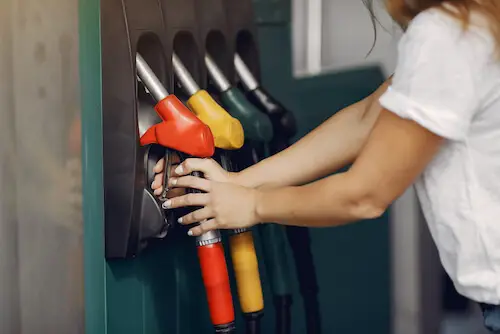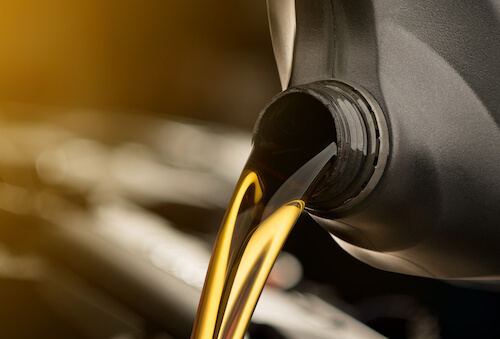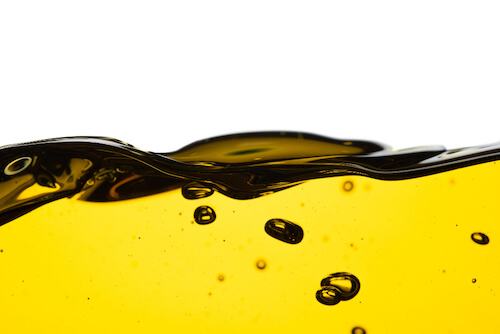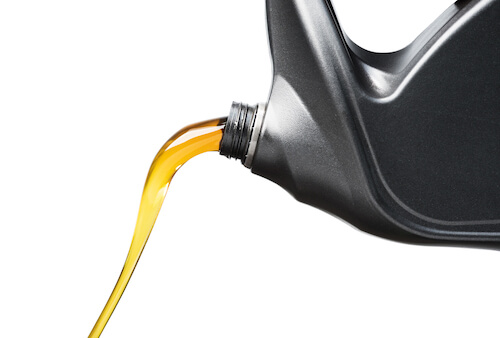In the wake of Volkswagen’s emissions scandal, many people have been looking into the benefits and drawbacks of diesel fuel. Some proponents of diesel claim that it is more flammable than gasoline, but is this really true? Let’s take a closer look at the evidence.

The Health and Safety Executive in the UK have classified Diesel fuel as a flammable liquid. Some others like gas oil and light heating oils are also considered flammable.
This main reason for this is partly because the upper flashpoint for identifying flammable liquids was increased from 55 °C to 60 °C.
While diesel fuel is not as flammable as gasoline, it can still catch on fire under the right conditions. If you are using diesel fuel in your home or property, it is important to take precautions to keep yourself and your family safe.
Keeping your family safe!
Safety incidents have taught me that everyone should have a home safety kit to ensure family members can escape a fire quickly and safely. Here is the Safety Kit that I recommend, in the event of a fire or other emergency.
Below are a few tips for using diesel fuel safely:
- Make sure that any container you store diesel fuel in is approved for use with fuels.
- Always store diesel fuel in a cool, dry place away from heat sources.
- Be aware of the risks associated with static electricity when working with diesel fuel.
- Keep an eye on the weather forecast and avoid using diesel fuel when thunderstorms are predicted.
- To avoid any danger of diesel fuel spilling or leaking, always use the correct size container.
The key thing is to approach handling diesel in a proportionate manner. This will include doing a risk assessment when deciding if additional measures are needed.
It is always better to be safe rather than sorry.
It is also important to remember that while the risk of diesel fuel catching fire or exploding might have been overstated in recent years, it can still cause some issues if handled incorrectly. So always handle it responsibly.
How much diesel can you store at home?
Diesel is a common fuel used in the UK for cars, vans, and lorries. Storing diesel at home, however, is subject to strict legislation to help reduce the levels of pollution caused by the incompetent storage of such fuels.
In the UK, homeowners are allowed to store between 30 and 200 litres of diesel oil at home.
Anything above the 200-litre limit means you must notify your local Petroleum Enforcement Authority (PEA) in writing, including your name and address as the occupier of the storage place or the address where the oil is stored.

These regulations apply mainly because oil-related accidents account for one-quarter of all emergency incidents. As such, UK’s Oil Storage Regulations apply to all new domestic and commercial installations across the country.
If you are using diesel fuel in your home or property, it is important to take precautions to keep yourself and your family safe. Make sure that any content you store diesel fuel in has passed the UK’s Oil Storage Regulations.
Can diesel catch fire from a cigarette?
This is a question that has likely crossed the mind of many a smoker: can diesel fuel catch fire from a cigarette?
The answer, as it turns out, is a bit complicated. While it is technically possible for diesel to ignite from a burning cigarette, the odds of it happening are actually quite low.
In order for diesel to ignite, the temperature must reach a relatively high flashpoint of about 52°C – 82°C. So while it is technically possible for diesel to catch fire from a cigarette, the likelihood of it happening is relatively small.

However, if diesel oil is soaked into a fabric, it can catch fire even at room temperature.
The use of cigarette lighters should never be allowed near diesel engines or fuel tanks, because the heat from the lighter may ignite flammable vapours inside the tank.
Will water put out a diesel fire?
One of the most common questions many homeowners ask is if water will put out a diesel fire. The answer?
No, water will not put out a diesel fire. In fact, it could make the fire worse. For diesel fires, you need to use a Class B extinguisher. Water can actually spread the fuel and make the fire worse.
A foam extinguisher is specifically designed to tackle petrol and oil fires. It works by smothering the flames and cutting off the fuel supply.
If you are thinking of storing diesel in your home, you should make sure that you have one of these extinguishers in your home in case of a diesel fire emergency.
What is the biggest risk with diesel?
The biggest risk when it comes to storing and using diesel fuel in your home is probably making a mess from overfilling any of the containers that you use. As such, it’s important to make sure that you always follow the instructions on the container carefully before filling up any of your storage containers.
Keeping your family safe!
Safety incidents have taught me that everyone should have a home safety kit to ensure family members can escape a fire quickly and safely. Here is the Safety Kit that I recommend, in the event of a fire or other emergency.
Another common source of danger is transferring diesel fuel from one container to another without following the proper safety procedures. If you are considering storing diesel at home, make sure that you only ever do so in approved containers.
Also, before transferring or pouring any of your diesel fuel between vehicles, be sure to always turn off the engine and allow it to cool down completely first.
It’s also important to note that burning nor smoking should be allowed near the storage area because both could lead to a diesel vapour explosion or fire.
Does diesel burn faster than petrol?
When it comes to the burning speeds of diesel and petrol, there is a lot of misinformation out there. Some people believe that diesel burns faster than petrol, while others think the opposite is true.
Diesel tends to burn slower than petrol, so it doesn’t exactly explode but is much more difficult to put out.
Diesel fuel is actually less flammable than petrol or gas because it does not vaporise as easily as these other fuels. And while petrol vapour is flammable, diesel is best described as a combustible liquid instead.

To safely contain diesel and petrol, you should always have control measures in place.
These control measures, as prioritised by the HSE as follows;
- reduce the quantity of dangerous substances to a minimum
- avoid or minimise releases of dangerous substances
- control releases of dangerous substances at source
- prevent the formation of a dangerous atmosphere
- collect, contain and remove any releases to a safe place (for example, through ventilation)
- avoid ignition sources;
- avoid adverse conditions (for example, exceeding the limits of temperature or control settings) that could lead to danger
- keep incompatible substances apart
If you follow these simple rules and control measures, then you should be well on your way to storing and using diesel without any issues.
Final Thoughts
When it comes down to it, people store diesel in their homes for a number of reasons. Diesel is used in generators, pumps and even cars.
However, it’s important that you follow all safety procedures when storing your diesel fuel at home. Even if you’re just storing some extra fuel on the side for an emergency, you should be following all of the proper safety precautions that are out there.
It’s also important to remember that water will not put out a diesel fire. Instead, you need to use either a Class B foam extinguisher or an appropriate chemical extinguisher instead.
